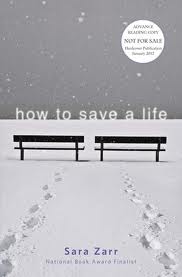Remember last week I talked about angst and being regretful about not doing my part in nominating a title I loved for YALSA’s Best Fiction for Young Adults list?
Field nomination forms are now open, including the nomination form for BFYA.
I’m planning on spending the next day or two thinking about the titles that have stood out to me, published after September 1, 2011 and the ones I’ve started in on with 2012 copyright dates, and I’m planning on writing up the nominations. As I mentioned in my original post on this topic, field nominations need to meet the designated list or award’s guidelines, and those are all spelled out on the individual websites (accessible here and here). It’s crucial you do your research on the particular award or list before you nominate, to make sure your nomination is actually heard.
Other things to consider when you nominate: write out a well-reasoned, thoughtful, and purposeful reason why that particular book or media fits the list or award for which you’re nominating it. For BFYA, for example, explain why that particular book is one you think is about the BEST fiction for young adults, as well as how or why it should be considered on a list for librarians who use those lists to develop their collections and provide reader’s advisory. Reference appeal of the book, why or how it’s particularly well written, what makes it better than average. You don’t have to write a novel for your nomination, but you do have to nail key aspects of the book that make it good. So, for the title I’ve already nominated (because yes! I’ve already submitted a title), I emphasized pacing, effective use of subtle detail for character development, and how the writer’s ability to bend genres to tell an effective and powerful story makes it one that will stand out and resonate with readers.
In other words, really think through why you think a book is worthy and emphasize those key points in your nomination form. The better job you do, the easier the job is on the part of the committee. You want your nomination to be taken seriously, and you want the committee to read the book, as well as discuss it.
If you’re nominating a title that was published between September 2011 and December 31, 2011, make sure you check the previous year’s list to ensure you’re not nominating a title that has already been added to a list.
Remember that anyone can nominate titles for consideration, as long as they meet the criteria (and as long as you’re not the author, publisher, or editor of that particular title because yes, the committee will check). I hope you join me in spending time this year offering up thoughtful, well-reasoned nominations for the different award and list considerations.





